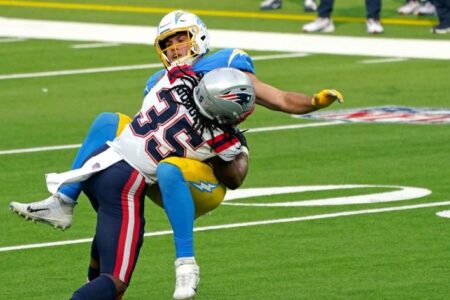Ignatius of Antioch
"Let no one do anything of concern to the Church without the bishop. Let that be considered a valid Eucharist which is celebrated by the bishop or by one whom he ordains [i.e., a presbyter].
Wherever the bishop appears, let the people be there; just as wherever ************ is, there is the Catholic Church" (
Letter to the Smyrneans 8:2 [
A.D. 110]).
The Martyrdom of Polycarp
"And of the elect, he was one indeed, the wonderful martyr Polycarp, who in our days was an apostolic and prophetic teacher,
bishop of the Catholic Church in Smyrna. For every word which came forth from his mouth was fulfilled and will be fulfilled" (
Martyrdom of Polycarp 16:2 [
A.D. 155]).
The Muratorian Canon
"Besides these [letters of Paul] there is one to Philemon, and one to Titus, and two to Timothy, in affection and love,
but nevertheless regarded as holy in the Catholic Church, in the ordering of churchly discipline. There is also one [letter] to the Laodiceans and another to the Alexandrians, forged under the name of Paul, in regard to the heresy of Marcion, and there are several others which cannot be received by the Church, for it is not suitable that gall be mixed with honey.
The epistle of Jude, indeed, and the two ascribed to John are received by the Catholic Church (Muratorian fragment [
A.D. 177]).
Tertullian
"Where was [the heretic] Marcion, that shipmaster of Pontus, the zealous student of Stoicism? Where was Valentinus, the disciple of Platonism? For it is evident that those men lived not so long ago—in the reign of Antonius for the most part—and that they at first were believers in the doctrine of the
Catholic Church, in the church of Rome under the episcopate of the blessed Eleutherius, until on account of their ever restless curiosity, with which they even infected the brethren, they were more than once expelled" (
Demurrer Against the Heretics 30 [
A.D. 200]).
Cyprian of Carthage
"They alone have remained outside [the Church] who, were they within, would have to be ejected.
. . . There [in John 6:68–69] speaks Peter, upon whom the Church would be built, teaching in the name of the Church and showing that even if a stubborn and proud multitude withdraws because it does not wish to obey, yet the Church does not withdraw from Christ. The people joined to the priest, and the flock clinging to their shepherd in the Church. You ought to know, then, that the bishop is in the Church and the Church in the bishops; and if someone is not with the bishop, he is not in the Church. They vainly flatter themselves who creep up, not having peace with the priest of God, believing that they are secretly in communion with certain individuals.
For the Church, which is one and catholic, is not split or divided, but is indeed united and joined by the cement of priests who adhere to one another" (
Letters 66[67]:8 [
A.D. 253]).
http://www.catholic.com/tracts/what-catholic-means


















